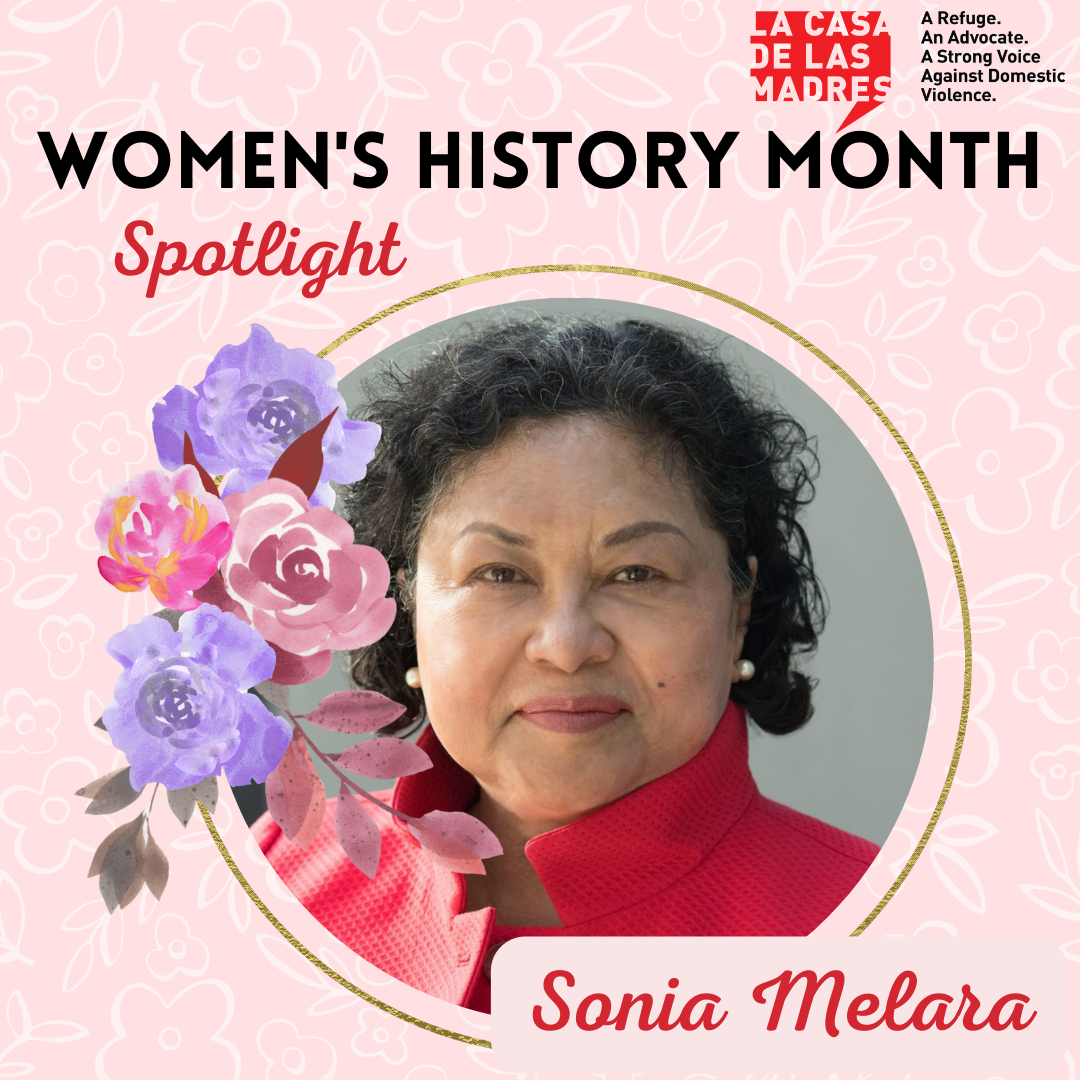To celebrate Women's History Month, we've been shining a light on a handful of the many powerful women who've shaped the world into a better place for survivors of domestic violence and our communities.
Step back in time with us to La Casa's early days and the trailblazers leading the way to greater safety, security, and empowerment for women and survivors of violence.
The origins of domestic violence shelter
In 1976, a dynamic coalition of Bay Area women opened the doors to San Francisco's oldest and largest shelter dedicated to women and children escaping domestic violence. At the time, domestic violence was largely ignored by the legal, political, and medical fields. Survivors of abuse were not seen as a category of people who required specialized support, when they were seen at all.
Our founders knew the harrowing choices facing victims, and they established La Casa de las Madres so victims and survivors of abuse had a safe place to turn – when the alternatives were danger, destitution, or homelessness. They named this refuge La Casa de las Madres—Home of the Mothers—to honor the memory of one of their mothers who was brutally murdered by her spouse.
There are many people who feel a deep connection to the founding days, weeks, and years of La Casa. The organizing, the founding, the funding, and the fight against dismissive and oppressive systems was a collective effort, a roiling of energy and a courageous demand for change. In January 1976, when the doors to La Casa's confidential sanctuary formally opened, we were "a coalition of 20 women who have directly experienced family violence in our lives."
Founding mothers and members of the La Casa Coalition bravely "…testified at State Senator Moscone's hearings on marital violence, and began generating an interest in this "new" social problem." In transcripts from the United States Commission on Civil Rights in 1978, then Chairperson of the San Francisco Commission on the Status of Women Del Martin shines a bright light on "[the question] we should be asking: "What is it about marriage and society that keeps a woman captive in a violent marriage? I have already alluded to historical attitudes toward wives as property of their husbands, to acceptance of lesser violence, like slapping as "legitimate," and to public agency policy which offers victims no alternative."
Later, in that critical 1978 hearing, La Casa founder Dr. Shelley Fernandez spoke on behalf of Marta Segovia Ashley, telling "Marta's Story" in memory of her mother, Seferina Segovia Ortega's life and brutal death in 1947. Dr. Fernandez, who made the first shelter possible by donating the use of a four-story Victorian, went on to describe the first family in residence:
We accepted our first resident two days [after January 15, 1976]. She moved in. She was a Mexican woman with three teenage sons. She spoke only Spanish but could neither read nor write her native tongue. She had lived with a man who was violent to her for 18 years. The night before her husband had beaten her when she refused to sleep with him, he had locked her out of the house. Her sons had helped her into their bedroom through the window and her husband had come in and in front of them, overturned a bed on her. He had gone too far in frightening her children. She decided that evening that somehow she would leave him the next day. (Pages 102-103)
From La Casa's archives, dating January 1976:
La Casa continues to serve that critical purpose today. La Casa provides half of the city's emergency shelter beds for domestic violence and is the only organization bringing survivors who are in imminent danger into a safe, confidential refuge around the clock.
But we don't stop there. The most comprehensive domestic violence service provider in San Francisco, our work reaches 13,000 community members each year. We run an active Drop-In Counseling Center, two crisis hotlines, a text line, a survivors-over-50 project, and partnerships with San Francisco's Housing Authority, law enforcement, Human Services Agency, and various community service agencies to expand access to safety and critical domestic violence-related services.
La Casa and our allies in the anti-violence movement have made countless collective strides. Resulting in routine intimate partner violence screening at medical appointments, healthy relationship workshops inside high school classrooms, and legal protections to protect survivors' economic and housing stability. Citywide, SFPD officers are now being trained on lethality assessments and trauma-informed on-scene survivor interventions. Youth-focused programs are raising up awareness and activists demanding and shaping non-violent relationships.
Yet, yes. So much remains to be done. A young women was murdered (allegedly, at this point) by her husband in Daly City earlier this month, shot in the back in front of their young children. It's simply not acceptable.
We believe that freedom from domestic and gender-based violence is a basic human right. And we will continue the fight. Please join us.
Our mission states:
We respond to calls for help from domestic violence victims, of all ages, 24 hours a day, 365 days a year. We give survivors the tools to transform their lives. We seek to prevent future violence by educating the community and by redefining public perceptions about domestic violence.
A refuge, an advocate, and a strong voice against domestic violence.





